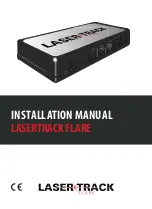
Lighting
5-7
This is because the generator
(alternator) may not be spinning fast
enough at idle to produce all the
power that is needed for very high
electrical loads.
A high electrical load occurs when
several of the following are on, such
as: headlamps, high beams, fog
lamps, rear window defogger,
climate control fan at high speed,
heated seats, engine cooling fans,
trailer loads, and loads plugged into
accessory power outlets.
EPM works to prevent excessive
discharge of the battery. It does this
by balancing the generator's output
and the vehicle's electrical needs.
It can increase engine idle speed to
generate more power, whenever
needed. It can temporarily reduce
the power demands of some
accessories.
Normally, these actions occur in
steps or levels, without being
noticeable. In rare cases at the
highest levels of corrective action,
this action may be noticeable to the
driver. If so, a Driver Information
Center (DIC) message might be
displayed, such as BATTERY
SAVER ACTIVE, BATTERY
VOLTAGE LOW, or LOW BATTERY.
If one of these messages displays,
it is recommended that the driver
reduce the electrical loads as much
as possible. See
Driver Information
Center (DIC) on page 4
‑
31
.
Battery Power Protection
This feature helps to prevent battery
drain if accessory lamps are left on.
If accessory lamps such as the
vanity mirror, cargo, reading,
console, or glove box are left on,
they automatically time-out after
about 20 minutes. To reset the
battery protection, all of the
above lamps must be turned off
or the ignition must be in the
ACC/ACCESSORY position.
Exterior Lighting Battery
Saver
The exterior lamps turn off about
10 minutes after the ignition is
turned to LOCK/OFF, if the parking
lamps or headlamps have been left
on. This protects against draining
the battery. The battery saver
does not work if the headlamps are
turned on after the ignition is turned
to LOCK/OFF.
To keep the lamps on for more than
10 minutes, turn the lamps back on
with the exterior lamp control.
Summary of Contents for 2010 CTS
Page 6: ...vi Introduction 2 NOTES...
Page 110: ...3 10 Storage 2 NOTES...
Page 113: ...Instruments and Controls 4 3 2 NOTES...
Page 114: ...4 4 Instruments and Controls Instrument Panel Overview CTS Shown CTS V Similar...
Page 184: ...5 8 Lighting 2 NOTES...
Page 240: ...7 8 Climate Controls 2 NOTES...
Page 306: ...9 6 Vehicle Care Engine Compartment Overview CTS 3 6 L V6 Engine shown 3 0 L V6 Engine similar...
Page 308: ...9 8 Vehicle Care CTS V 6 2 L V8 Engine...
Page 418: ...9 118 Vehicle Care 2 NOTES...















































